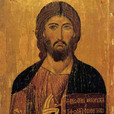
Summary: This episode of CS is provocatively titled “The Lapsed Dance.”In the 4th episode titled “Martyrs”, we examined the persecution Christians faced at the hands of the Roman authorities. We noted that persecution, while at times fierce, wasn’t one, long campaign of terror that lasted for a couple centuries. It tended to be spasmodic & regional, based on the whim of the current emperor, enforced in spotty fashion by governors who either agreed or disagreed with the official policy from far-away Rome. There were a couple seasons of Empire-wide persecution in the 3rd C that proved to be the most intense.Following Trajan’s more even-handed attempt to deal with the problem of the Christians in the early 2nd C, 2 Emperors followed a more rigorous campaign of persecution & pressed its application to the borders of the Empire. In the mid to late 3rd C, Decius & Diocletian considered Christianity a dangerous threat. Their reasons for opposing the Faith were several but looming large was the concern Christianity would weaken the Army, desperately needed to protect the borders being harassed by barbarians. Also, die-hard pagans claimed the old gods who’d overseen Rome’s rise to greatness were angry so many of their worshippers had turned to the new Faith. They warned disaster loomed; the only way to stay it was to appease the wrath of the gods by slaking it with Christian blood.To this end, some Emperors renewed an old practice: Emperor worship. While the details of this practice varied from time to time & place to place, the basic routine went like this . . .Once every so many years, the residents of a city had to appear in the public square, where they ascended a raised platform, picked up a pinch of incense, dropped it on some hot coals and announced, “Caesar is Lord.” The exact words of the oath varied depending on who was sitting on the throne. But the point was to honor the reigning Roman Emperor as a deity, minor as that deity might be in the pagan pantheon. While pagans who already recognized a plethora of gods had no problem adding one more to the list, Christians owned a fierce repulsion to confessing anyone other than Jesus Christ as Lord. They simply couldn’t do it. As the pagan left the dais after going through this little rite, he was handed a libelli – a certificate proving his loyalty. He kept that certificate as proof of loyalty, producing it whenever an authority asked him to show his compliance with Rome’s decree. In this manner, the Christians were marked out; they had no libelli.Now, as can be imagined, this challenge led to some memorable martyrdoms, especially in North Africa where Christianity flourished. It also led to one of the biggest controversies the Church had yet faced.Some Christians, under the threat of death, capitulated to the pressure, burned the incense & spoke fealty to Caesar. They took the libelli and went about their business. Once the Emperor Decius was gone and persecution eased, these capitulators repented their weakness and applied for readmission to the Church. The challenge for church leaders was = What was to be done with these “lapsed” members, as they were called?Some advocated their re-admission to the felloowship pending a review of their specific case by the local elders. Others, led by a church leader named Novatian, argued vehemently for their exclusion. For Novatian and his supporters, there was no room for any kind of negotiation. The lapsed were to be barred from fellowship. The controversy between the Novatianists and the majority of churches which by that time had made the church at Rome their unofficial headquarters became so great, it seemed there was only one way to solve it. The Novatianists were declared heretical by the majority and put outside the Communion of Saints.The Novatianist controversy flared up again following the last great persecution under the Emperor Diocletian. This time it went by the name of Donatism.D
